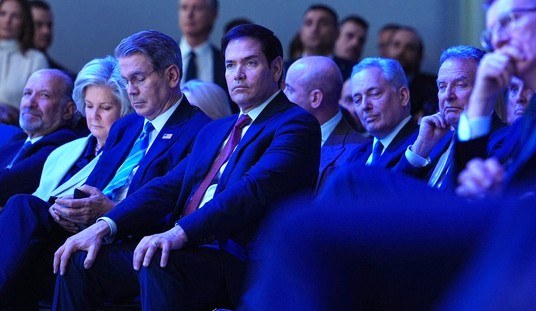It took me years to figure out that markets work better than government.
I started out as a typical Ralph Nader-influenced consumer reporter, convinced that companies constantly rip us off. To me and most of my fellow left-leaning reporters, the answer was always: more regulation.
Gradually, I figured out that regulation causes many more problems than the occasional rip-off artist does. Companies that served customers well prospered, while market competition meant cheaters seldom got away with cheating for long.
Regulation, by contrast, lasted forever. It punished innovation, making it harder for good people to offer better alternatives.
How do I spare people the long learning process I went through?
A former producer of mine, Todd Seavey, has written a book called "Libertarianism for Beginners." It lays down a few basic principles that make it easier to understand what a free market is -- and how everything government does interferes with that market.
"Your body, like all your property, should be yours to do with as you please so long as you do not harm the body or property of others without their permission," writes Seavey. That means government can't tell people what to do unless those people threaten harm.
Seavey didn't come up with that idea himself, of course. In the book, he describes the history of philosophers and economists who've urged people to follow that rule for some 200 years.
That rule helped make America the most prosperous and productive country in the world.
Unfortunately, while those libertarian ideas allowed innovation to flourish, government and regulation grew even faster.
A century ago in the U.S., government at all levels took up about 8 percent of the economy. Now it takes up about 40 percent. It regulates everything from the size of beverage containers to what questions must not be asked in job interviews.
Recommended
How can people be expected to keep up with it all?
Seavey points out that it's backwards to expect them to try. Instead of just looking at the complicated mess government makes, we need to review the basic rules that got us here.
Instead of the rule being "government knows best" or "vote for the best leader," says Seavey, what if the basic legal rules were just: no assault, no theft, no fraud? Then most waste and bureaucracy that we fight about year after year wouldn't exist in the first place.
To most people, it sounds easier to leave big policy decisions -- about complex things like wages, food production and roads -- to government. Having to make our own decisions about everything and trade for everything in the marketplace sounds complicated.
But Seavey argues that the "hands off other people's stuff" rule would feel like second-nature if we were more consistent about enforcing it. "Even chimpanzees are capable of being outraged if other chimpanzees take their food so the basic impulses to defend property and to resist assault," he writes, "no doubt predate human history."
It's when politicians convince people that those simple rules aren't enough that voters decide to let bureaucrats, lawyers and politicians make the decisions instead. Then the public loses track of the complicated rules. Even the full-time media can't keep up with all the trickery.
We can -- and should -- keep reporting on government's broken promises and endless scandals. But to teach people they shouldn't count on government to produce good things in the first place, they need some basic philosophy.
Seavey's book may help, which is why I wrote the foreword to it. I like that the book has cartoons, making it more fun than dull economics textbooks. I hope it provides a model for looking at the world to people confused by stupid things government does.
But Seavey is too much the open-minded intellectual. He writes, "It may turn out that the system of control and redistribution that we thought was working to solve our problems was the real problem all along."
No. There's no "may turn out" about it. Forty-five years of watching government "solutions" go bad has taught me that state control rarely works, and it usually makes problems worse. Government control and redistribution is definitely the real problem.

























Join the conversation as a VIP Member